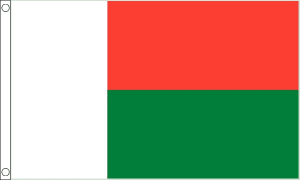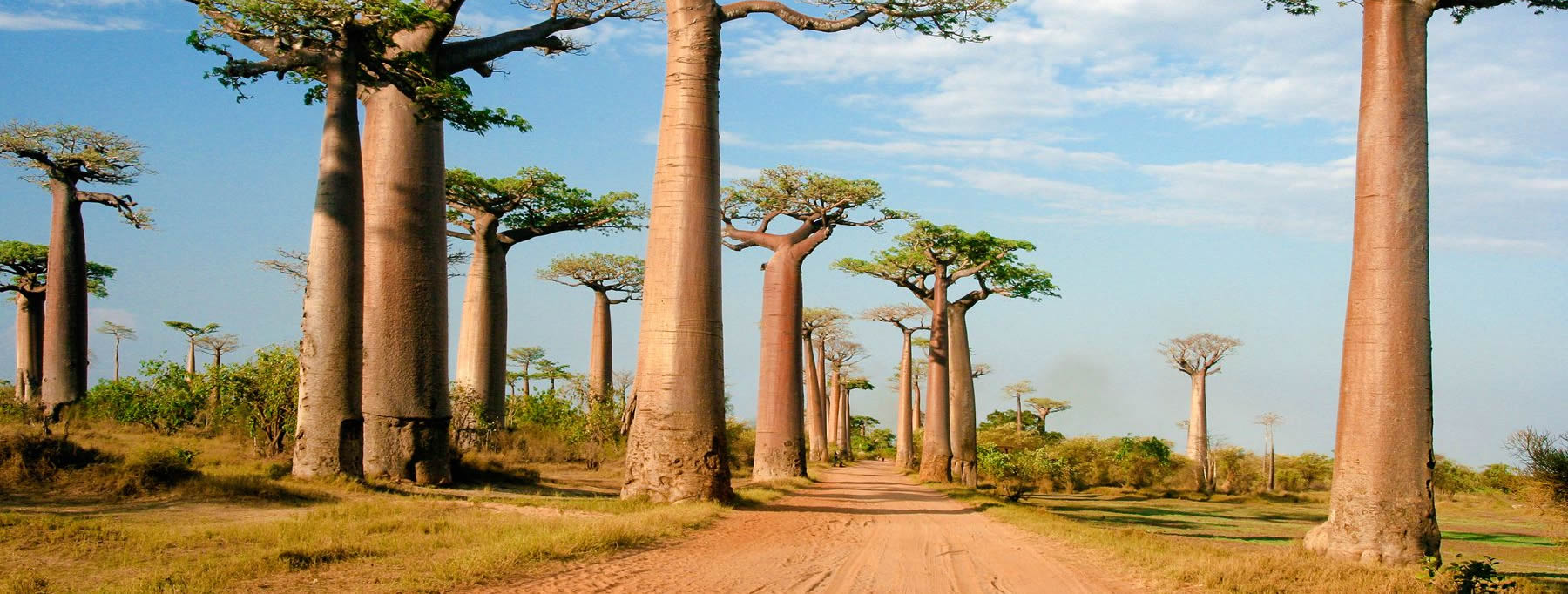Language/Southern-betsimisaraka-malagasy/Culture/Madagascar-Timeline
Jump to navigation
Jump to search
Rate this lesson:
Historical Timeline for Madagascar - A chronology of key events
Madagascar Timeline[edit | edit source]
1787 - 1990[edit | edit source]
- 1787: the island is divided into kingdoms on a tribal basis. One of these kingdoms, Imerina (region of Antananarivo), unifies Madagascar under its authority.
- 1883: French protectorate.
- 1896: annexation of the “Big Island” by France.
- 1947: the violent repression of an insurgency against the colonial authority kills more than 80,000.
- 1960: proclamation of independence. The first president is Philibert Tsiranana, leader of the Social Democratic Party. It was renewed in 1965 and 1972.
- 1967: peasant revolt in the south of the country.
- 1972: the student protest leads to a political crisis. In May, President Tsiranana resigned and a government of soldiers and technicians was formed.
- 1975: after two turbulent years, creation, in June, of a Supreme Council of the Revolution, headed by Admiral Didier Ratsiraka. In December, the constitution proclaiming the Second Republic was adopted by referendum. The National Charter of the Malagasy revolution, the “red book” (boki mena in Malagasy) advocates the entry of the country into the socialist camp.
- 1990: start of a protest movement. Repeated strikes by students.
1991[edit | edit source]
- June-July: series of demonstrations demanding a revision of the constitution and the departure of Didier Ratsiraka. The Forces Vives movement (Hery Velona), which brought together the entire opposition, decided to create a parallel government. Albert Zafy is the Prime Minister. Strikes paralyze the country.
- August: despite a cabinet reshuffle, protests continue. On August 8, the police fired in the crowd marching towards the presidential palace, killing 12 according to the authorities, more than a hundred according to the opposition.
- October 31: a High State Authority for the Transition to the Third Republic, chaired by Albert Zafy, is established. Didier Ratsiraka remains head of state as a symbol of national unity, but Albert Zafy leads most of the country's affairs.
- August 1992: adoption by referendum of a new constitution for the advent of the Third Republic.
- February 1993: Albert Zafy is elected President of the Republic.
- February 1994: Cyclone Geralda kills 300 people and leaves 350,000 homeless.
- 1996: political crisis between President Zafy and parliament.
- September 5: increasingly criticized for his personalization of power, Albert Zafy is dismissed by the High Constitutional Court.
- December 29: Didier Ratsiraka narrowly wins the early presidential election, with 50.7% of the vote against 49.3% for Albert Zafy.
1998 - 2000[edit | edit source]
- March: the Malagasy narrowly approve a new constitution which introduces decentralization.
- May: The Alliance for the Renovation of Madagascar (Arema), the party of President Ratsiraka, obtains only 62 seats out of 150 in the legislative elections.
- 1999: industrialist Marc Ravalomanana is elected mayor of Antananarivo.
- 2000: Arema, the ruling party, wins a majority of municipalities in local elections in October.
2001[edit | edit source]
- March 18: Arema wins the majority of the seats of senators elected by the large voters.
- June 10: Didier Ratsiraka appoints ten faithful to the posts of provincial governors.
- December 16: first round of the presidential election, which takes place peacefully and with a high turnout.
- December 22: Marc Ravalomanana organizes a demonstration to “celebrate the Christmas of victory”. The partial results credit him with 46.71% of the vote, against 40.62% for Didier Ratsiraka.
2002[edit | edit source]
- January: start of a series of demonstrations that bring together hundreds of thousands of opposition supporters in the capital every day.
- 25: The High Constitutional Court proclaims Ravalomanana at the head of the first round with 46.21% of the votes, against 40.9% in Ratsiraka, and calls a second round. The opposition candidate calls for a general strike.
- February
- 22: Marc Ravalomanana proclaims himself president. He was sworn in after the announcement, by a senior magistrate, of his victory in the first round "with 52.15% of the vote against 35.67%" to the outgoing president. The OAU, France, the Spanish Presidency of the European Union (EU) and the United States condemn the operation. In the evening, President Ratsiraka declares a state of emergency.
- 26: Ravalomanana appoints lawyer Jacques Sylla Prime Minister. The country thus has two parallel governments.
- April
- 10: The Supreme Court annuls the appointment of six of the nine members of the High Constitutional Court (HCC), which had proclaimed the electoral results.
- 18: an agreement is concluded in Dakar between Ratsiraka and Ravalomanana, providing for the establishment of a government of reconciliation.
- 29: the HCC proclaims Marc Ramalomanana elected with 51.4% of the votes, against 35.9% for Didier Ratsiraka, in the first round of the presidential election on December 16.
- 30: two provinces proclaim their independence.
- May
- 6: Marc Ravalomanana is officially invested president of Madagascar, in the presence of several representatives of the international community.
- 27: the army seizes the offices of the Prime Minister of Didier Ratsiraka to install Jacques Sylla there.
- June: the United States recognizes the new president.
- July: France recognizes Marc Ravalomanana; Didier Ratsiraka fled to France.
- December 15: President Marc Ravalomanana's party, "J'aime Madagascar", along with its allies wins 132 of the 160 seats in the National Assembly. Marc Ravalomanana undertakes a policy of privatization and opening up of the island to foreign capital.
- November 2003: the presidential party wins the municipal elections.
- December 3, 2006: Marc Ravalomana is reelected in the first round of the presidential election.
2007[edit | edit source]
- April 4: voters vote 75% for a constitutional reform which strengthens presidential power, makes English the third official language (along with French and Malagasy) and removes the term “secular state” from the Constitution.
- September 23: with 106 deputies out of 127, the Malagasy presidential party wins the legislative elections marked by an abstention close to 80%.
- December 12: election of Andry Rajoelina as mayor of Antananarivo.
2008[edit | edit source]
- February: Cyclone Ivan kills more than 90 people and leaves nearly 190,000 homeless.
- March: Madagascar extracts its first barrels of oil as part of a prospecting project in Tsimiroro, 560 kilometers west of Antananarivo.
- July: a contract is signed with the Daewoo group for the lease, for ninety-nine years, of some 1.3 million hectares of agricultural land intended to produce 4 million tons of corn and 500,000 tons of corn. 'Palm oil. in March 2009, Andry Rajoelina will return to this agreement.
- December 13: the government shut down the television channel of the mayor of the capital, Andry Rajoelina, after the broadcast of an interview with ex-president Didier Ratsiraka, in exile in France.
2009[edit | edit source]
- January 24: the mayor of Antananarivo, Andry Rajoelina, calls for a general strike against the “dictatorship” of President Ravalomanana. Several demonstrations against the president turn into riot in the Malagasy capital, killing more than 80 people.
- February 3: Andry Rajoelina, who had filed a request for the dismissal of the president the day before, is himself removed from his post as mayor by the Minister of the Interior.
- February 7: the presidential guard shoots the crowd of supporters of the mayor, killing around thirty people.
- February 11: opening of negotiations between the rival camps of the Madagascan president and Andry Rajoelina, under the leadership of representatives of the Churches.
- March 10: after forcing the Minister of Defense to resign, the army issues an ultimatum to the civil authorities to get out of the crisis.
- March 17: President Marc Ravalomanana hands over his powers to a military board, which immediately transfers them to Andry Rajoelina.
- March 21: investiture ceremony of Andry Rajoelina. No foreign head of state or diplomat is present.
- March 30: Madagascar is excluded from the Southern African Development Community (SADC).
- End of March-April: demonstrations, repressed by the police, supporters of Marc Ravalomana, in exile in South Africa.
- May 12: Andry Rajoelina, promises not to run for the next presidential election.
- August 9: meeting in Maputo under the aegis of the Southern African Development Community, the main Malagasy politicians decide to set up a transitional government which will organize elections by the end of 2010.
- November 6: the rival Malagasy camps agree on the formation of a government of national unity. Andry Rajoelina remains president but will be flanked by two co-presidents from the movement of Marc Ravalomanana and Albert Zafy.
- December: Andry Rajoelina turns his back on the peace agreements and appoints a former officer, Albert Camille Vital, as prime minister.
2010[edit | edit source]
- January: the president of the African Union commission, Jean Ping, presents a new "compromise" to the Malagasy officials.
- March 17: expiration of the ultimatum granted by the African Union for the implementation of the Maputo agreements. The AU imposes sanctions on 109 Malagasy personalities, including Andry Rajoelina.
- May 12: Andry Rajoelina affirms that he will not be a candidate in the next presidential election, which he announces will be held for the month of November.
- August 11: a timetable is drawn up to get out of the crisis. It provides for a constitutional referendum on November 17 and sets May 4, 2011 for the presidential election.
- August 28: Former President Marc Ravalomanana is sentenced in absentia to hard labor for life in the trial of the perpetrators of a massacre where the presidential guard fired on the crowd in 2009.
- September 13: opening of a "national conference" in Antananarivo to resolve the political crisis.
- November 17: the Malagasy are called upon to vote in a referendum on a draft Constitution, the first electoral stage in the process of ending the crisis.
Source[edit | edit source]
- https://fr.wikipedia.org/
- https://www.petitfute.com/
- https://www.lexpress.fr/actualite/monde/afrique/chronologie-de-madagascar-1787-2010_499084.html
World Timelines[edit source]


